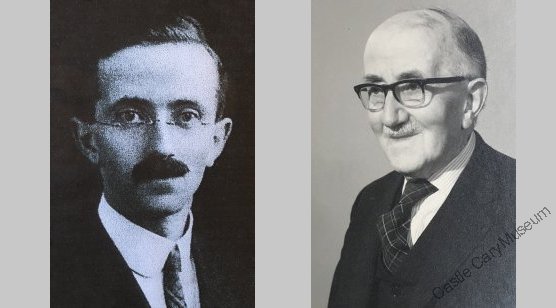DOUGLAS MACMILLAN MBE

Douglas Macmillan, founder of the charity which bears his name, was born in Ansford on 10 August 1884. His grandfather, John Macmillan, had moved down to Wincanton from the village of Ochiltree in Scotland. His friend, John Boyd, from the nearby village of Old Cumnock, also arrived in Wincanton and lodged with the Macmillans. Boyd went on to establish the horsehair factory which still flourishes in Castle Cary, and his friend's son, William Macmillan, came to work for him, living in the terrace of stone houses which Boyd built for his workers in 1877 and named after his Scottish home. It was here, at 12 Cumnock Terrace, that Douglas was born. A little later his family moved to Ochiltree House, built in 1825 and then incorporated into John Boyd's complex of factory buildings off Upper High Street, Castle Cary.
Douglas attended Sexey's School in Bruton and at the age of seventeen left home for London. He sat the Civil Service Entrance Exam and took up a post with the Ministry of Agriculture in 1904. For many years he lived in Sidcup, Kent. His was a reserved occupation, so he was not called for military service during the First World War.
When the Second World War broke out, Douglas's department was evacuated to St, Annes's near Blackpool, and he became responsible for the welfare and morale of the young people under him. It was for this in particular, as well as his more general Civil Service work, that he was appointed an MBE in 1944, just before he retired.
Douglas's father, William, had died in 1919, after an operation for cancer of the oesophagus, and it was the suffering that he endured that led Douglas's life-long interest and concern for those diagnosed with cancer. In 1912 he started the 'Society for the Prevention and relief of Cancer' among family and friends, but it grew steadily and by 1924 it had become the 'National Society for Cancer Relief' and was registered as a benevolent society.
In its first year the society distributed £11 in grants to patients, by 1982 this had grown to £292,482 and in 2012 the organisation enabled £245 million to be distributed, both from its own funds and by directing requests to other sources of financial help.
From 1945, when he retired from the Civil Service, Douglas devoted most of his time to running the society until 1963, when he resigned as Chairman. The objectives he laid down for the society in 1930 anticpated those which gave rise to the hospice movement. As the special needs of cancer patients were increasingly recognised, the society gave financial support for the building of three hospices and by 1975 it had built and equipped the first Macmillan cancer care unit at Stoke-on-Trent.
In 1965 Douglas and his second wife, Nora, decided to return to his birthplace, and he had a bungalow built for themselves in Lower Ansford. It was here that Douglas died, ironically, of cancer, in 1969; he is buried in the town cemetery. He was a quiet, caring man, of deep religious convictions as well as having a talent for sketching and more particularly for poetry; he was the clan bard for the Macmillan clan, and examples of both types of his work are on display in the museum.
The local Macmillan Committee in Castle Cary and Ansford is very strong and active, as might be supposed, and has raised sums of around £15,000 annually for many years.